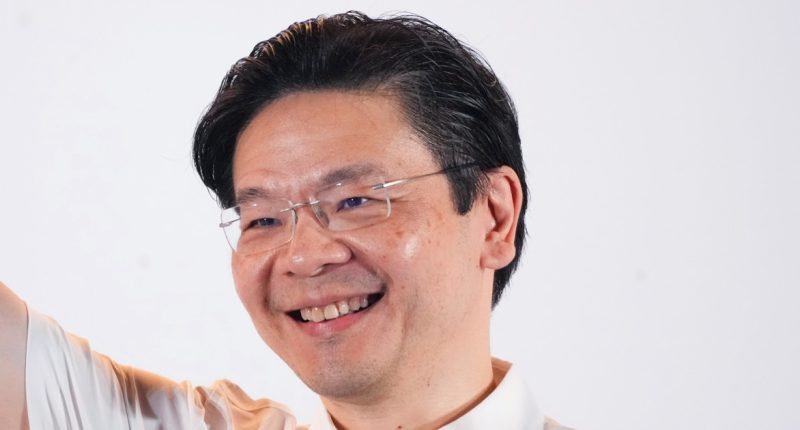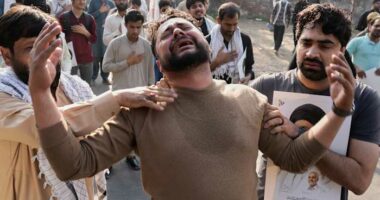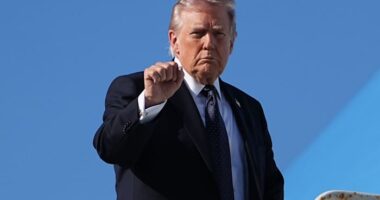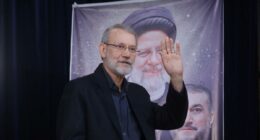Share this @internewscast.com
SINGAPORE — In Saturday’s general elections, Singapore’s People’s Action Party, which has dominated political power for 66 years, achieved yet another decisive victory. This result greatly benefits Prime Minister Lawrence Wong, who assumed leadership the previous year.
The Election Department declared that the PAP secured 82 Parliamentary seats after the completion of the vote count. Earlier, they had claimed five seats without opposition, amounting to 87 out of the total 97 seats. The opposition Workers Party continued to hold its 10 seats.
The PAP’s share of the popular vote increased to 65.6%, an improvement from the near-historic low of 61% in the 2020 elections. Elated PAP supporters, celebrating their party’s uninterrupted governance since 1959, gathered in stadiums, waving flags and cheering in triumph.
“We are grateful once again for your strong mandate. We will honor the trust you have given to us by working even harder for all of you,” Wong said in a speech earlier to his constituency before the full results were out.
Eugene Tan, a law professor at the Singapore Management University, said the opposition’s failure to make further inroads after 2020 was a surprise. “Singapore voters played their cards close to their chest. Today, they indicated that their trust is with a party that has delivered over the years,” he said.
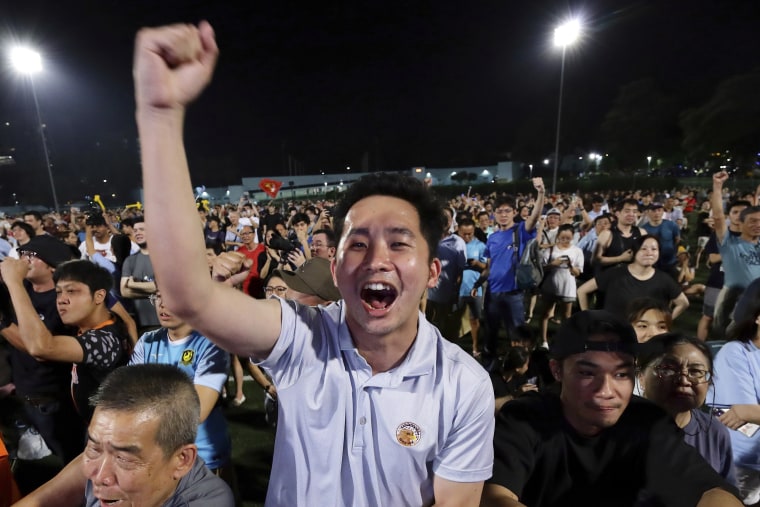
A U.S.-trained economist who is also finance minister, Wong’s appeal for a resounding mandate to steer trade-reliant Singapore through economic turbulence following U.S. President Donald Trump’s tariff hikes has hit home. The government has lowered its growth forecast and warned of a possible recession.
Wong, 52, succeeded Lee Hsien Loong to become the city-state’s fourth leader. Lee stepped down in May 2024 after two decades at the helm but remained in the Cabinet as a senior minister. His retirement as premier ended a family dynasty started by his father, Lee Kuan Yew, Singapore’s first leader, who built the former colonial backwater into one of the world’s richest nations during 31 years in office.
The PAP is seen as a beacon of stability and prosperity, but tight government control and the rising cost of living in one of the world’s most expensive cities also has led to growing unhappiness, especially among younger voters. Widening income disparity, increasingly unaffordable housing, overcrowding and restrictions on free speech have loosened the PAP’s grip on power.
The opposition says giving it a stronger presence in Parliament will allow a more balanced political system and greater accountability. But they face an uphill task, often hamstrung by a lack of resources, fragmented support and a lack of unity. Critics said gerrymandering also gives the PAP an advantage.
Pritam Singh, leader of the Workers Party, acknowledged it was a tough contest and vowed to continue the fight for a more balanced Parliament. “The slate is wiped clean, we start work again tomorrow, and we go again,” he said.
While the Workers Party failed to expand its presence, it had consolidated its support with increased share vote in some areas, said Southeast Asia political analyst Bridget Welsh. Other smaller opposition parties however, failed to make a breakthrough.
Welsh said voters opted for stability amid concerns over global volatility due to sweeping U.S. tariffs. Wong’s more approachable leadership in engaging yunger voters and efforts to renew PAP by bringing in about a-third of new faces also helped swung votes, she said.
“I call this the Wong and Trump effect,” she said. “The issue of economic insecurity really did reinforce his mandate.”
